Cohealth Kangas provides connection for people living with homelessness and disability
A mixed football team made up of people experiencing homelessness, mental ill-health and disabilities, took part in an inspiring game of footy at Kensington’s JJ Holland Reserve last month.
The Cohealth Kangas, a team made up of clients of not-for-profit community health organisation Cohealth, took on the Wynbay Bulldogs – clients of youth support agency Latitude – in a home-game match on June 22. Players wore their Indigenous round jumpers, as well as black armbands after the death of a First Nations’ community member.
And following what was a close contest between the two sides, it was the Kangas who emerged the victor, defeating the Bulldogs 13.9 (87) to 10.5 (65). However, it’s the results the team is having for its players off the field that is most significant.
According to Cohealth, the Kangas have gone from strength to strength since COVID restrictions lifted, with the number of players increasing from eight to around 18, as people return to the field, or in many cases, join for the first time.
The Cohealth Kangas formed more than 20 years ago as part of the Reclink football league, a program that provides sport and recreation to people facing disadvantage and social isolation.
Cohealth says that football has provided a gateway to connecting people who face barriers to healthcare with the services they need.
Having started playing for the Cohealth Kangas 12 months ago, Yorta Yorta man Glen Scott said that being part of the team had been an important part of his recovery from drug and alcohol dependence, with his recovery having started three years ago after experiencing homelessness for several years.
“I had to learn to reconnect with the community. I had to relearn socialising. The drug world is a dark, dingy world and you’re cut off from the rest of the community,” he said. “Being part of the Kangas is a way for me to feel part of something. It has reminded me that there is better stuff than being in a dark dingy world.”
Cohealth uses the training days and matches to check-in on vulnerable clients, connect people with accommodation providers, provide health referrals to GPs and allied health and deliver, professional development days with guest speakers.
Each week throughout season, Kangas coaches Beau Branch and James Rose, drive around to pick up isolated players from their homes to transport them to the oval for training and games.
“It’s a cliché, but it really is more than just a game, or a weekly exercise activity. It’s a chance for people who live on the margins to socialise and to feel part of a community,” Beau Branch said.
“The program is a way for Cohealth to stay in touch with people that might be struggling with their health – mental and physical – but be reluctant to engage with the mainstream health system.”
To improve inclusion for players with disabilities, the game applies special rules for those players who don special vests; any contact with the ball counts as a mark resulting in a free kick.
Cohealth’s Street Doctor van, a pop-up vaccination clinic, was also on the sidelines at JJ Holland Reserve on June 22 offering COVID jabs to players and gamegoers. •

Jo Ryan unveils Ordered Chaos at Blender Studios


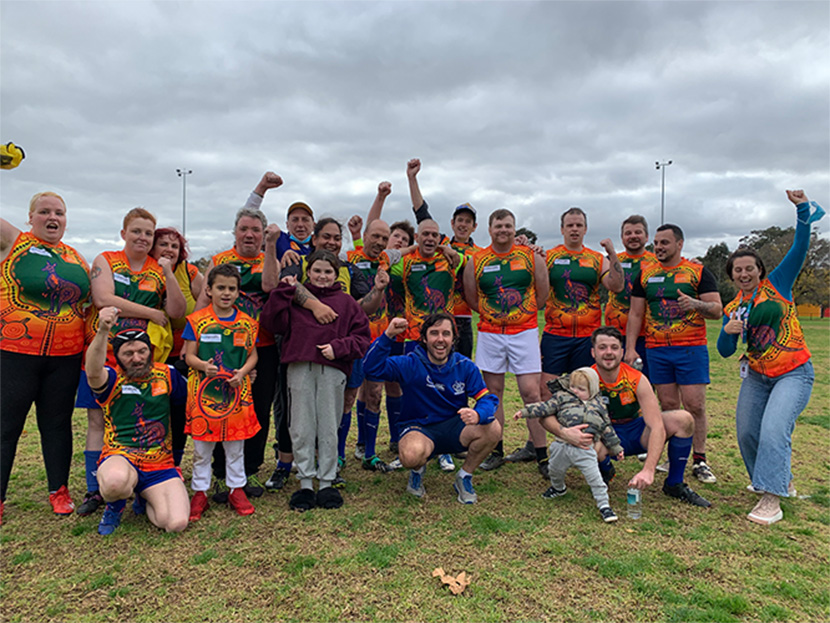
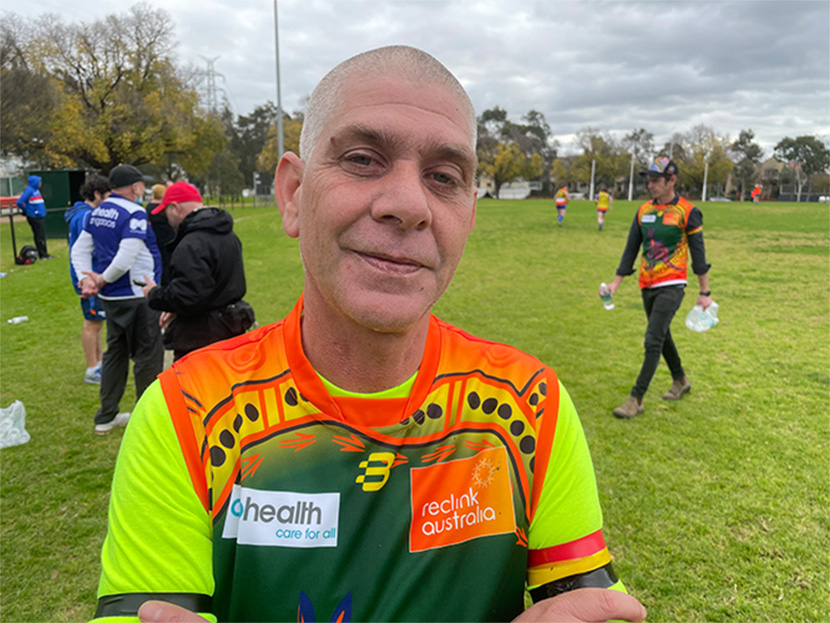
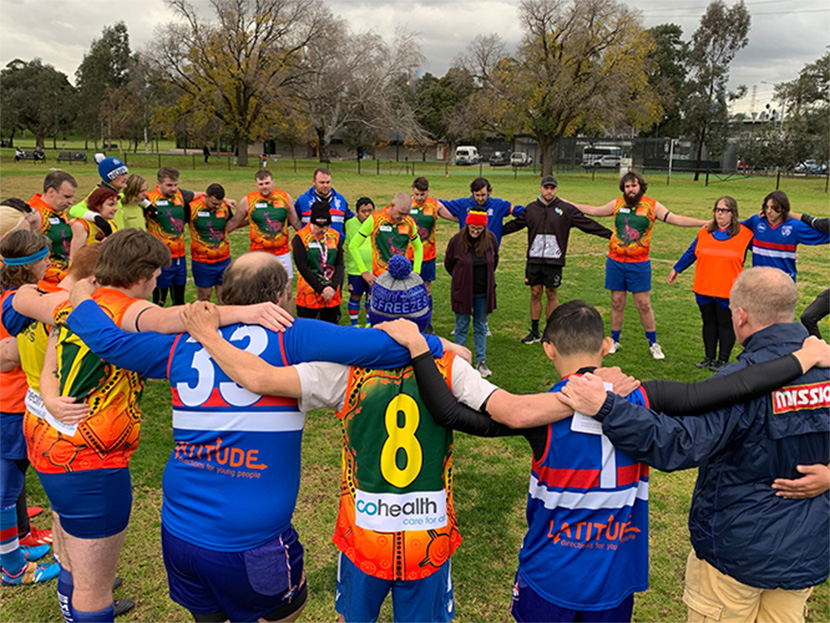
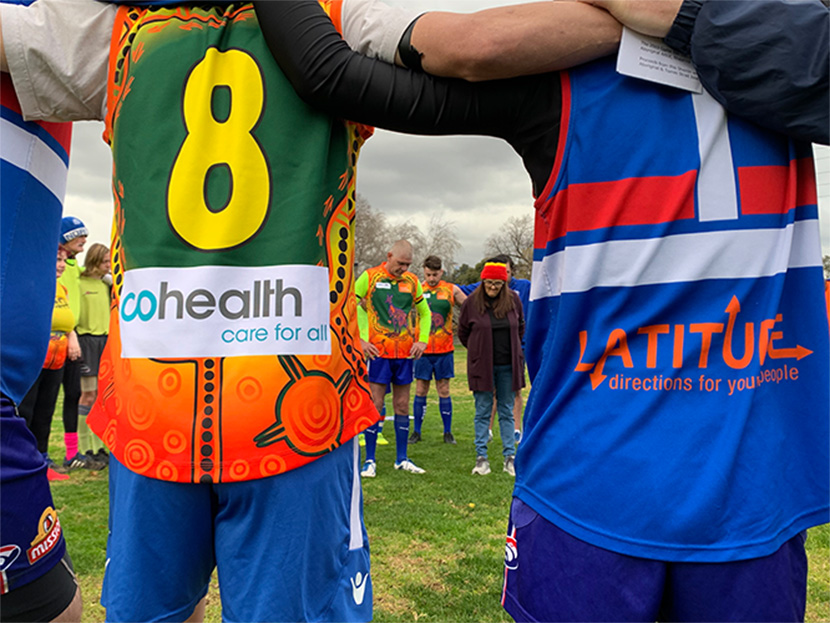

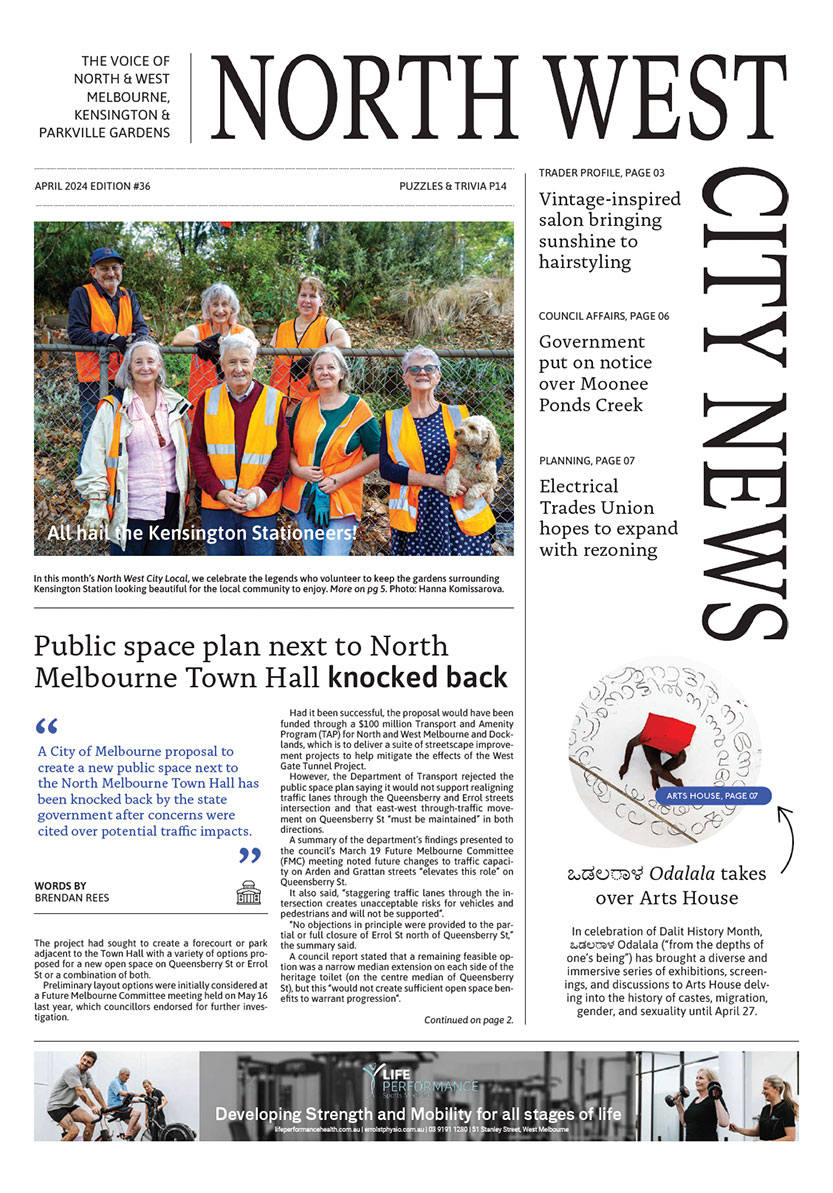 Download the Latest Edition
Download the Latest Edition